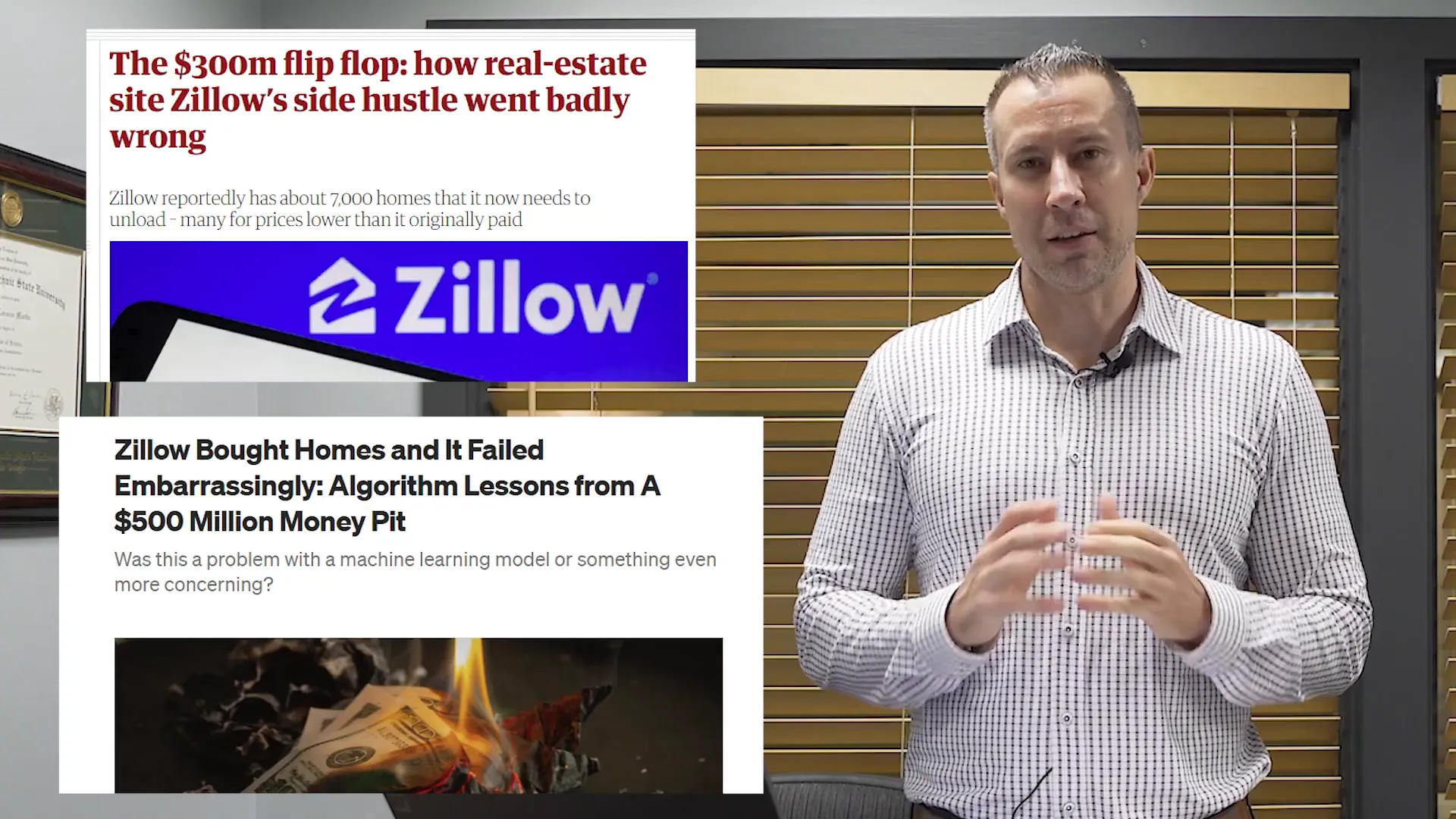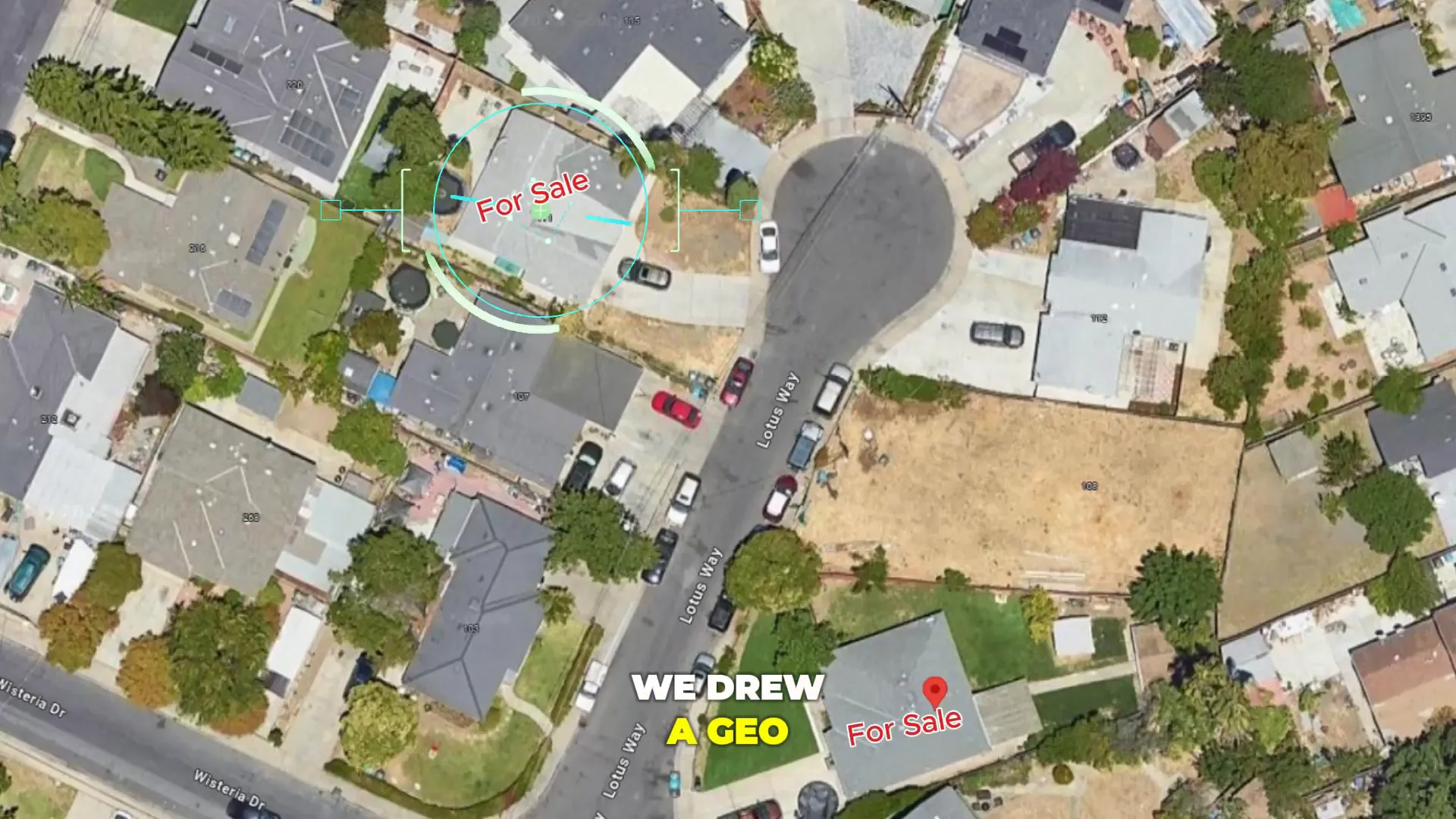Real Estate Market Update: Understanding iBuying and Its Impact
Real Estate Market Update: Understanding iBuying and Its Impact
In this Real Estate Market Update, we explore the concept of iBuying and its implications for home buyers and sellers. Discover how companies like Zillow, Redfin, and Open Door are leveraging technology to assess property values and the challenges they face in the current market.
What is iBuying? 🏡
iBuying, or instant buying, refers to a process where companies use technology and algorithms to purchase homes directly from sellers. Unlike traditional home sales, which can be lengthy and complex, iBuying offers a streamlined approach. Companies like Zillow, Redfin, and Open Door have pioneered this model, aiming to buy homes quickly and at what they perceive to be below market value.
This method relies heavily on data analysis, where algorithms assess property values based on various metrics. Sellers can receive cash offers within days, allowing for quick transactions without the hassle of showings or negotiations.
The Role of Algorithms in Home Buying 📊
Algorithms play a crucial role in the iBuying process. By analyzing vast amounts of data, these programs attempt to predict future home values and identify properties that can be flipped for profit. They consider factors such as location, market trends, and historical sales data.
However, the reliance on algorithms can lead to discrepancies. The models often lack the nuanced understanding that experienced real estate professionals possess. This disconnect can result in offers that are either too low for sellers or too high for the companies, creating financial risks.

Zillow's Approach to iBuying 🔍
Zillow was among the first major players to embrace iBuying with its Zillow Offers program. The company aimed to revolutionize home buying by providing fast cash offers based on their proprietary Zestimate valuations. This approach was designed to make transactions easier for sellers who preferred speed over traditional methods.
However, Zillow's ambitious plans faced significant challenges. The company's reliance on its algorithms led to substantial losses as the market shifted. They overestimated home values, leading to purchases that didn’t yield the expected returns. Ultimately, Zillow had to halt its iBuying program, marking a significant retreat from its initial strategy.

The Downfall of Zillow's iBuying Program 📉
The downfall of Zillow's iBuying program serves as a cautionary tale in the real estate industry. Despite the initial success, the company faced severe financial strain, culminating in the decision to shut down the program entirely. The losses were staggering, with reports indicating that Zillow lost over a billion dollars in a single quarter.
Market volatility and rising home prices contributed to these challenges. Zillow's algorithms failed to adapt quickly enough to changing market conditions, resulting in overpaying for numerous properties. This situation highlights the risks associated with over-reliance on technology in a market that is inherently unpredictable.

Open Door's Financial Struggles 💔
Open Door, another key player in the iBuying space, has also experienced significant financial challenges. The company reported losses that echoed Zillow's struggles, with figures exceeding a billion dollars in recent quarters. This downturn has raised questions about the sustainability of the iBuying model.
Open Door's strategy, similar to Zillow's, involved rapid purchases based on algorithmic valuations. However, the housing market's fluctuations caught them off guard, leading to a backlog of homes that could not be sold at anticipated prices. As a result, Open Door has had to reassess its business model and make cuts to remain viable.

Redfin's Recent Changes 🔄
Redfin has also made headlines with its recent changes in the iBuying landscape. The company announced the closure of its iBuying program, a decision influenced by the broader market challenges affecting its competitors. Redfin's move reflects a shift in strategy as the company seeks to focus on its core real estate services.
Along with shutting down its iBuying operations, Redfin has also announced layoffs, cutting 15 percent of its workforce. This decision underscores the difficulties that technology-driven real estate companies face in a volatile market. Despite the allure of quick transactions, the reality has proven to be far more complex.

The Importance of Human Touch in Valuation 🤝
In the realm of real estate, the human touch is irreplaceable. While algorithms can crunch numbers and analyze data, they often miss the subtleties that only an experienced agent can perceive. Factors such as neighborhood dynamics, property condition, and emotional appeal play significant roles in determining value.
Human agents can provide context that algorithms lack. For instance, they can assess local market trends and understand buyer preferences, which are crucial for accurate valuations. This personal insight can often lead to a more precise understanding of a property's worth.

Why Estimates Can Vary 📈
When comparing estimates from companies like Zillow and Redfin, discrepancies often arise. This variation can be attributed to different data sources, methodologies, and algorithms used by each platform. While one may emphasize recent sales data, another might focus on broader market trends.
Moreover, these estimates do not account for unique property features. Upgrades, renovations, or even a home's curb appeal can significantly influence its market value. Understanding these nuances can help homeowners navigate the complexities of real estate valuations.

Get Your Home Valued Accurately 🏠
If you're seeking an accurate home valuation, it’s essential to consult with a local real estate expert. They can provide a comprehensive analysis that considers both quantitative data and qualitative insights. This dual approach ensures a well-rounded perspective on your property’s worth.
Additionally, real estate professionals can offer tailored advice on improvements that may enhance your home's value. Whether it’s a fresh coat of paint or a landscaping upgrade, these enhancements can make a significant difference in attracting potential buyers.

Conclusion and Call to Action 📞
The landscape of real estate is ever-evolving, with technology playing a prominent role. However, the importance of human insight in valuation cannot be overstated. As we've seen, relying solely on algorithms can lead to misleading estimates and financial pitfalls.
If you’re curious about your home's true value or need guidance navigating the current market, reach out today. A knowledgeable real estate agent can provide the expertise needed to make informed decisions.
Frequently Asked Questions ❓
- What is the difference between an algorithmic estimate and a human appraisal?
Algorithmic estimates rely on data and statistical models, while human appraisals consider subjective factors and local market knowledge.
- Can I trust online estimates for my home’s value?
While online estimates can provide a ballpark figure, they should not be solely relied upon for making selling or buying decisions.
- How often should I get my home appraised?
It’s advisable to get a new appraisal if you make significant renovations or if the market conditions change dramatically.
- What should I do if I disagree with my home’s estimated value?
Consult a local real estate agent for a comprehensive analysis and consider getting a professional appraisal for a second opinion.
Categories
- All Blogs (314)
- Client Testimonials (19)
- East Palo Alto (81)
- Graeham Watts Home Tours (23)
- Home Buyer's Process (34)
- Home Tours (28)
- Houses for sale in East Palo Alto (13)
- Investing (18)
- Landlord and Tenant Info (9)
- Menlo Park (49)
- Personal (5)
- Real Estate Questions Answered (91)
- Real Estate Tips (86)
- Redwood City (85)
- San Mateo County (10)
- Seller's Process (22)
Recent Posts










GET MORE INFORMATION

